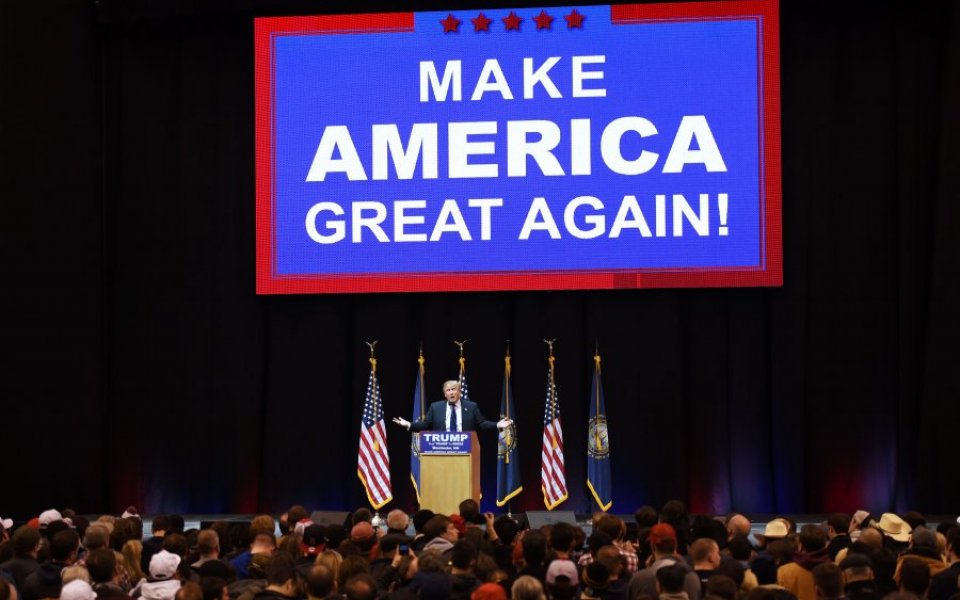President Trump or Clinton? Both would be a disaster for the American economy

Donald Trump is not inevitable. Despite his spectacular wins on Super Tuesday, he sits fewer than 100 delegates ahead of his closest competitor, senator Ted Cruz, and still needs to win over 900 more to secure the nomination. But his continuous victories – not only in primaries but across a wide range of demographics – quite rightly have many assuming that Trump is the likely Republican candidate for President.
It’s hard to know whether Trump’s own certainty of winning months back was due to honest confidence or simply a rhetorical tool to create (insincere) momentum. But there doesn’t seem to be any doubt in his mind now that he will secure the nomination. Having once been characterised only by bravado, his speech is taking on a calmer, more targeted tone. And he’s gearing up to target Hillary Clinton.
Her nomination is looking inevitable, as her seven state wins put her hundreds of delegates ahead of senator Bernie Sanders. While the latter impressed by winning his home state of Vermont with 86 per cent of the vote, as well as Colorado – which could be a key swing state come the general election – his failure to attract African American voters suggests that Clinton will continue to rack up delegates in the south, alongside establishment-friendly states like California and New York.
Both Clinton and Trump treated their victory speeches on Tuesday not like they had each won important primaries, but like the general election had already begun. Clinton’s pledge to “make America whole again” was a direct attack on Trump’s promise to “make America great again”, which, he often suggests, involves dividing the Hispanic community between citizens and illegal immigrants and deporting the latter. Trump returned the attack, suggesting that Clinton’s many years in Washington, D.C. failed to address stagnating wages and other problems facing the middle class. If she hasn’t managed to solve them by now, he professed, “it’s just going to become worse and worse”.
It’s easy to assume that a race between these two in the autumn would present Americans with polar opposite candidates. But if America is faced with Clinton vs Trump, the similarities between the two will be just as clear. And this should have anyone who cares about the US economy, and its impact on the rest of the world, frightened senseless.
The combination of Trump and Sanders’s campaigns have turned the 2016 election into a populist battle. While one blames immigrants and foreigners for America’s woes and the other blames Wall Street, both have attacked globalisation, free trade, and business. Clinton, who has moved left to take on Sanders’s challenge, was once a major advocate of the Trans-Pacific Partnership free trade deal, but has now backed away, refusing to commit her endorsement. Trump, more radically, has promised to crack down on free trade with China and Mexico, refusing to rule out embargoes.
Most disturbingly, neither candidate talks about luring business back to the US by cutting taxes or lifting burdensome regulations; both imply they will control the economy’s direction through legislation and the expansion of political power.
America could be facing a historical presidential race, not because of Trump’s background or Clinton’s gender, but because both parties may be running on platforms that attack free trade and business liberties. The US has a short history compared to many other countries, but in that short time has acted as a shining example of how free enterprise lifts a great many people to new levels of prosperity. Clinton is threatening to damage that history. Trump is threatening to blow it up. Either way, it is a sad day in America when neither party is willing to make an economically literate case.